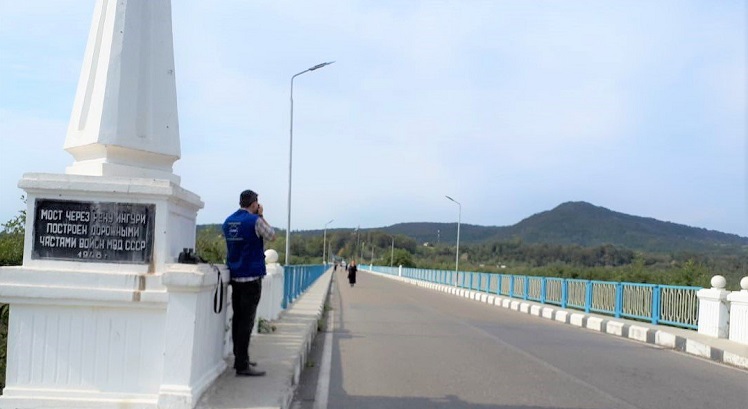Tbilisi ‘strongly condemns’ replacing Georgian with Russian in occupied Gali schools

The Georgian Education Ministry has responded to a full ban on Georgian in all schools of occupied Gali district. Photo: ipress.
The Georgian Education Ministry has strongly condemned a full ban on Georgian and its replacement with Russian in schools of the country's Russian-occupied Gali district.
The ministry says that the ‘illegal decision’ of the de facto Abkhaz government ‘is a gross violation of fundamental human rights and international law. ‘
Gali, which came under Russian control following the Russia-Georgia 2008 war, is mostly inhabited by ethnic Georgians.
The Georgian Education Ministry says that they are communicating with international partners, co-chairs of Geneva International Discussions and the European Union Monitoring Mission on the issue.
We will do our best to protect the best interests of children and ensure the availability of education in their mother tongue,” said the ministry.
The Georgian State Ministry for Reconciliation and Civic Equality is also concerned by the replacement of the Georgian curriculum in schools.
 Enguri bridge, which leads to Georgia's Russian-occupied Abkhazia region. Photo: EUMM Georgia.
Enguri bridge, which leads to Georgia's Russian-occupied Abkhazia region. Photo: EUMM Georgia.
Unfortunately, despite the appeals from the Georgian government and the international community, blatant violation of fundamental rights, including the right to receive education in the native language, continues especially in occupied Gali and Akhalgori districts”, the office of the state ministry said earlier this week.
The ban on Georgian has been introduced step by step, over years, and it initially concerned first and second graders.
Only 11th graders have been allowed in recent years to study in Georgian.
Now students of all grades will have to study in Russian, while Georgian will be studied as a foreign language.
Locals who wish to receive a higher education on Tbilisi-controlled territory often have to secretly cross the occupation line.
There have been cases when adults received serious injuries in the process.
The central Georgian government offers special education and other services to individuals living in the country’s occupied territories.
The Tskhinvali and Abkhazia regions of Georgia, which comprise 20 per cent of the country’s territory, are currently occupied by Russia.
 Tweet
Tweet  Share
Share